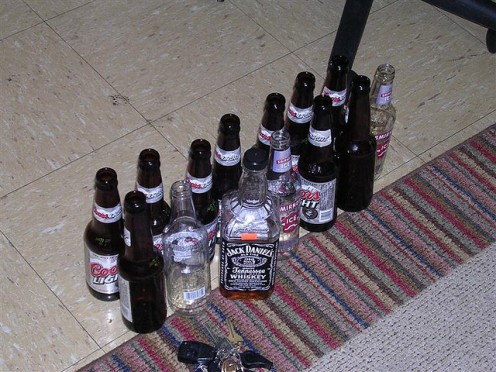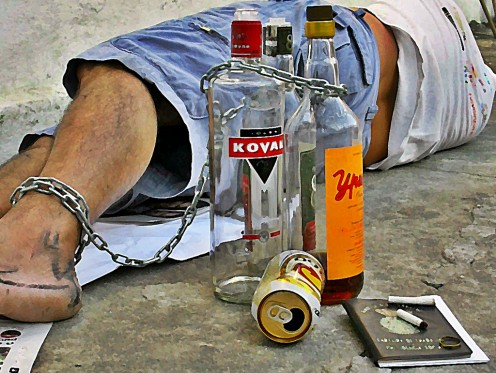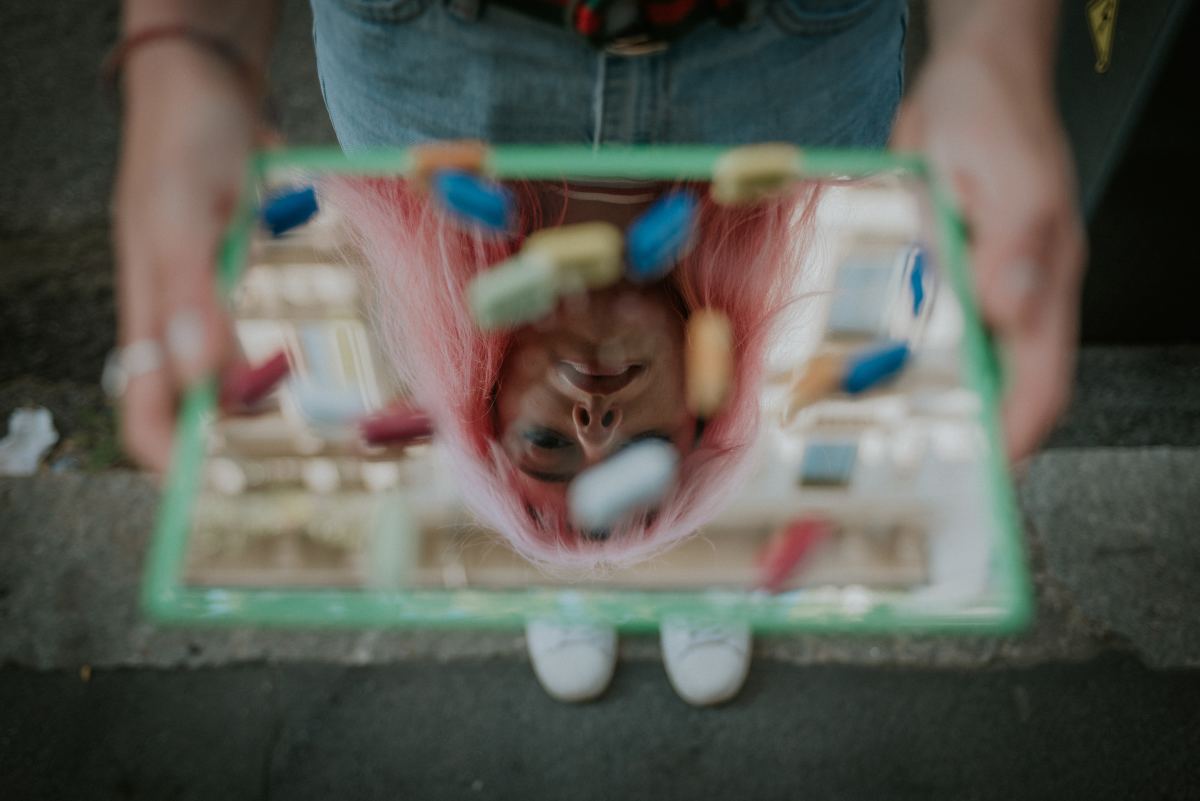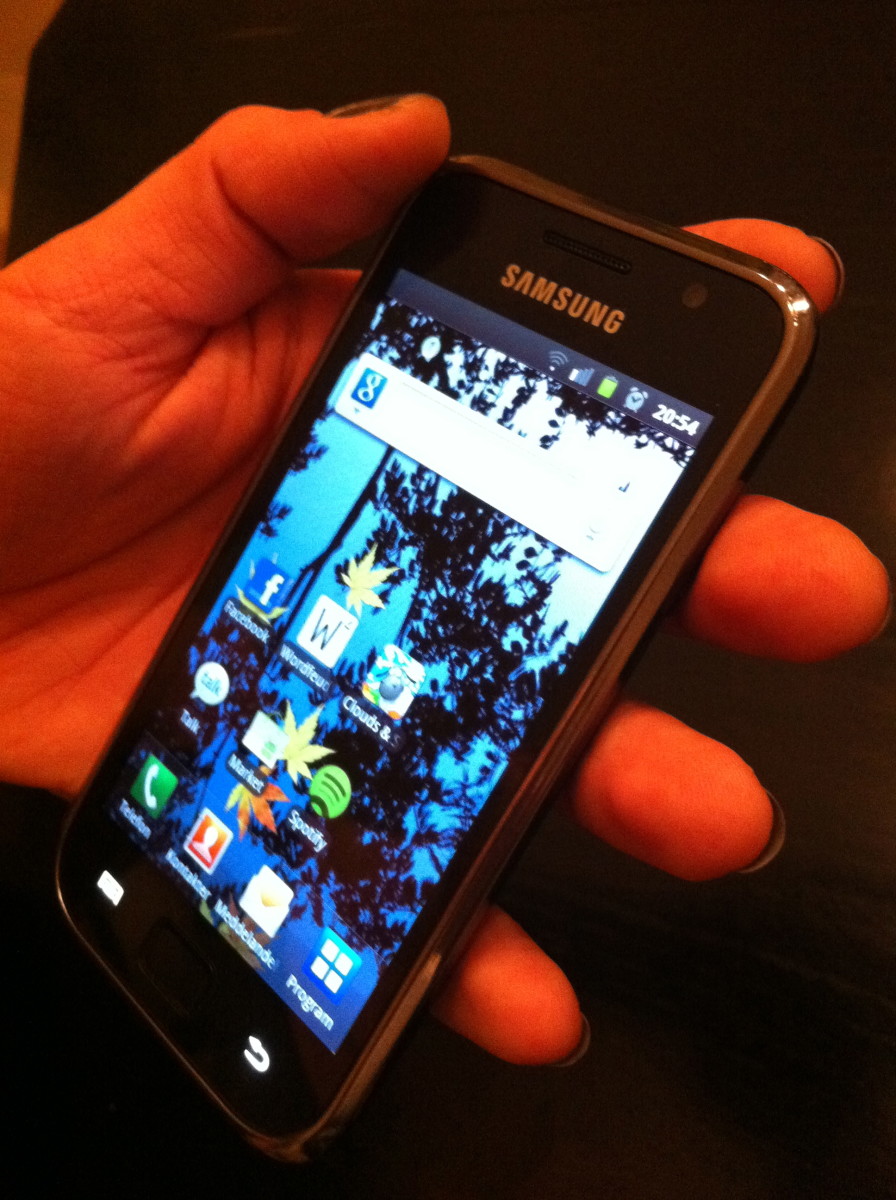Teen Drinking: The Realities of Substance Abuse, Alcoholism and Drug Use
Teens and Partying
I sat in the pediatrician's office last summer with my boys, ages 14 and 12, and claimed that I probably didn't have to worry about drinking or drug use because they were so involved in sports. The doctor did not laugh at my naïve statement, but she did give me a "look."
Glancing at me over the top of her bifocals, the pediatrician cautioned that, while sports and other extracurricular activities may be some insurance for parents, the fact of the matter is that nearly all teens will be exposed to partying, and most will experiment before graduation.
For me, the teenage years seemed to appear out of nowhere. Just a few years ago, the boys were in elementary school. Now, my oldest is heading to high school and the younger one is in middle school. Recently, mothers sitting in the bleachers at basketball have started whispering about the rumors of drug sniffing dogs at the school, the suspicious smell of pot on someone else's kid's clothes, and - just like me - claiming that their son would never participate in such experimentation.
So, what is the truth about teens and partying? The reality, the risks and other statistics may be sobering. At least, we hope that they are.

For Teens: Four Reasons Not to Drink
- It can make you gain weight: alcohol has empty calories and when you drink it, you may make poor nutritional decisions when your inhibitions are lowered (pizza, nachos, chips, etc.)
- It will negatively affect athletic performance: alcohol is a diuretic and causes dehydration, as well as affecting your electrolyte balance
- You will have to work harder to maintain grades: memory is impacted by alcohol abuse, making it more difficult to recall what you have studied
- You can maintain self-respect by saying no: staying sober gives you power over your drinking peers because you will know what you did and said the night before, and you are not risking suspension, arrest, pregnancy or worse by underage drinking
What Influences Affect Whether a Teen will Start Drinking?
Children are exposed to a wide variety of influences, starting at a very young age. By the time a child reaches the teen years, many factors will have already played a role in determining whether he or she starts drinking or experimenting with drugs.
These include:
- Unstable home environment
- Lack of a sense or belief of importance
- Inconsistent discipline, boundaries and responsibility expectations
- Parental alcohol and/or drug use
- Sibling behavior issues
- Lack of engaging, positive extracurricular activities
- Activities of friends and peers
- Lack of other role models
- No sense of purpose or direction in life: difficulty in accepting "who they are"
- Underlying medical issues, particularly untreated anxiety or depression
- Genetic history of alcoholism or drug abuse in the family
- Compulsive or impulsive personality traits
Just because some of these factors are present in a teen's life does not mean that they will start drinking. However, experts agree that these indicative traits may lead to a propensity to use or abuse drugs such as alcohol.
Be a smart parent or guardian and get ahead of the game! Talk to your teen about drinking, help them make smart choices and get involved if you think your child is using alcohol or other drugs.
Effects of Teen Drinking on a Developing Brain
Statistics on Teens and Alcohol
- By the time they reach 18, more than 70% of teens have tried alcohol
- Most teen drinking occurs in social settings: over 80% of people aged 12-20 who consumed alcohol in the past month were in groups of two or more
- Teen use of alcohol dramatically rises with age: 10% of 12-year-olds have used alcohol at least once. By age 13, the percentage climbs to 20%. By age 15, about 50% of the kids in this age group have had at least one drink.
- When teens drink alcohol, they tend to binge drink, consuming an average of 5 drinks in a single sitting
- Teens cannot legally purchase alcohol when they are minors; some adult - whether a parent, friend or the store cashier - is willingly providing the substance to them
* Sources: Office of the Surgeon General. (2007). The Surgeon General's Call to Action To Prevent and Reduce Underage Drinking: A Guide for Families, Rockville, MD: U.S. Department of Health and Human Services; Substance Abuse and Mental Health Services Administration. (2008). Underage alcohol use: Findings from the 2002-2006 National Surveys on Drug Use and Health.
Risks of Teen Drinking
Alcohol abuse is dangerous for any individual, no matter their age. For teens, however, drinking any amount is risky.
This is because:
- Teenage brains are not mature - alcohol may prevent full growth and development, forever impeding cognitive functions
- Teens are less able to exercise good judgment - drinking intensifies this effect
- When inhibitions are lowered, teens may engage in unsafe sex, resulting in STDs or pregnancy; the risk of date rape may increase, as well
- Teen drinking may progress into the use of other dangerous drugs
- Teens tend to have smaller bodies than adults, which are more susceptible to intoxication and alcohol poisoning
- More teens die from alcohol-related accidents, diseases or suicides than from any other cause
- Teens that engage in binge drinking before the age of 24 are significantly more likely to develop alcohol addiction/alcoholism
Parents who believe that exposing their child to alcohol will prevent experimentation and substance abuse are sadly mistaken. Condoning unlawful consumption of alcoholic beverages is a crime. If the teen or any of his or her friends goes on to commit additional offenses after drinking at your home (ranging from drinking and driving to vehicular assault or vehicular homicide), you may be responsible to the same extent as if you were the one behind the wheel.
Set a good example. Respect the law. Discourage alcohol consumption until your child is of legal age.

Sad Facts on Teen Alcohol Use
Drinking Alcohol is a Form of Drug Use
Alcohol is a drug.
There are no "ifs, ands or buts" about this fact. Do not kid yourself by justifying its use by teens on the basis that it is socially acceptable, or that its legal (albeit when you are 21 in the U.S.).
People that abuse alcohol and alcoholics do so primarily because drinking serves a need for them, which include a desire to feel relaxed, less uptight, and happier. In this regard, alcohol is indeed a drug - a self-administered medication for depression or anxiety.
Those that have alcoholism in the family could be suffering from a chemical imbalance (low dopamine) that drinking temporarily alleviates. Over time, however, the body desires the alcohol drug more often and in larger quantities so that the person continues to feel "better."
Yet, teens that have depression and alcoholism in their family are not necessarily destined to develop addiction issues themselves. Even if the genetics and brain chemistry are there, positive role models and a good network of friends are a solid foundation.
Teenagers experiencing anxiety, sadness or other conditions may get appropriate relief through counseling and/or carefully prescribed medication in consultation with a pediatric doctor.
Teens Tell Their Stories About Alcohol and Drug Use
What Can Parents Do if They Think Their Teen is Drinking?
Acknowledge the issue. Silence gives consent for the teen to continue the risky behavior.
Start a conversation with your child in a safe environment, from a loving, concerned standpoint. Offer to answer questions or concerns, but be firm that underage drinking is not acceptable. Set forth clear, manageable consequences for behavior.
Require your teen to earn trust when it comes to driving, staying out with friends, or being left alone over a weekend. If you have any question in your mind as to whether any of these privileges are appropriately bestowed on your teen, you should probably listen to your gut instinct.
Take a look at your own behavior. Do you consume alcohol to excess, either too frequently or in large quantities at a single sitting? Do you drink and drive? Are there other family members that abuse alcohol? What can you change to help a teen make the right decision to wait until they are of age before consuming alcohol?
If you are worried about broaching the subject of teen drinking with your child, consult a school or professional counselor, your child's pediatrician, a spiritual advisor, and/or an organization such as Al-Anon or Alateen.
In some circumstances, professional intervention is required to address teen drinking that has already gotten out of hand. Do not wait in the hope that your child will "grow out of it," or pass through the phase. Many parents have buried their teenager due to the unintended consequences of underage drinking.

Do You Think Teen Drinking is a Problem?
This content is accurate and true to the best of the author’s knowledge and is not meant to substitute for formal and individualized advice from a qualified professional.
© 2012 Stephanie Marshall








